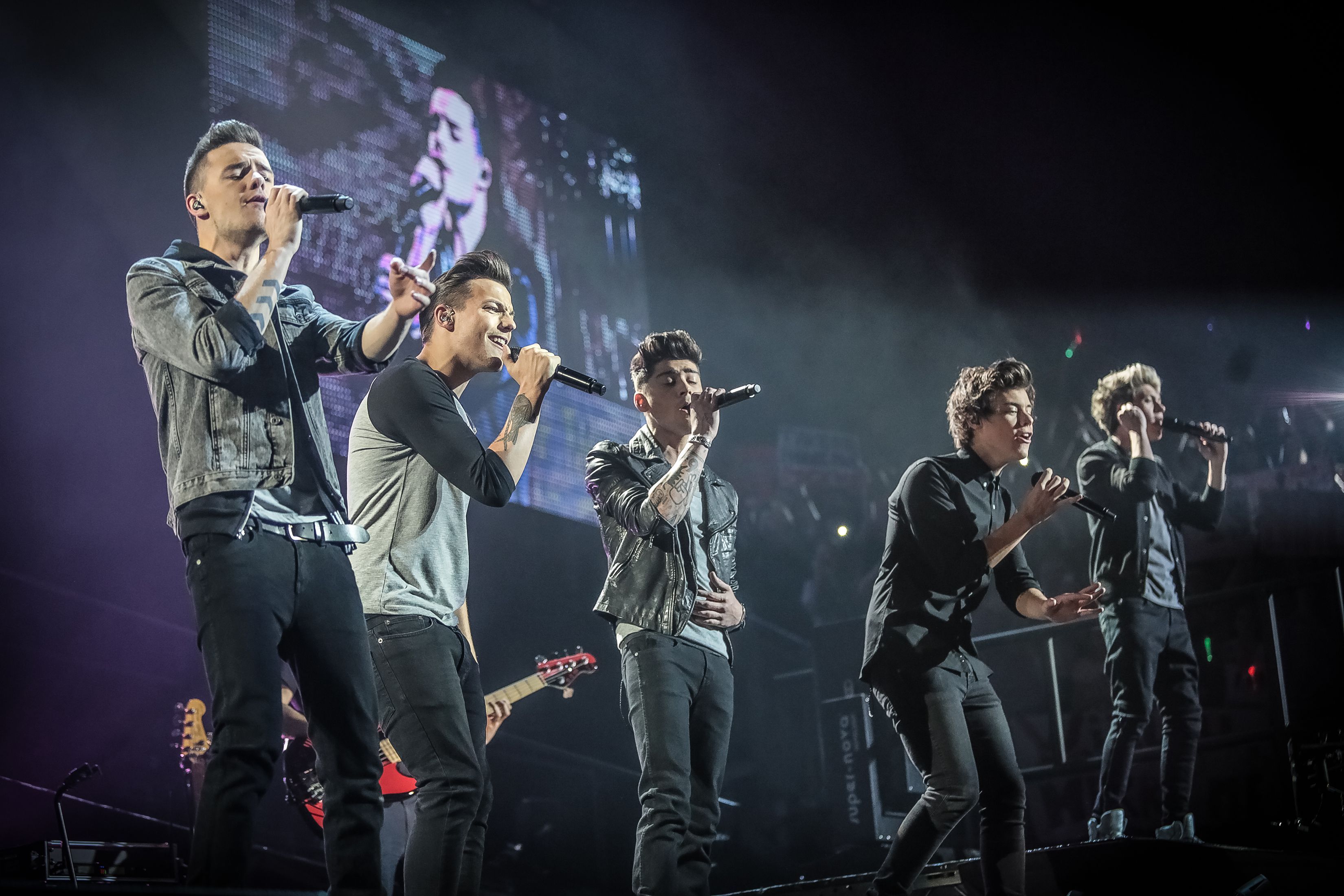Take it from someone who devoted the entirety of their preteen years to a band halfway across the globe — stan culture is a perplexingly addictive thing. I was eleven-years-old when I could recall any One Direction lyric for you in my sleep, identify a song within two seconds of the opening instrumental. I could recite their album tracklists in order, monologue the screenplay of music videos as if I directed them myself. The infatuation didn’t stop at their music. I could tell you each member’s birthday, hometown, favorite food… I even knew their blood types before I learned my own.
I was in sixth grade, hyper-analyzing paparazzi shots to gauge the longevity of each rumored new paramour, monitoring tabloids and family and friends’ social media accounts for any hints of personal life developments. When Niall got braces, I finally let an orthodontist take a much-needed look at my own haphazardly growing teeth. When Harry got his ship tattoo, I spent hours intricately replicating it with fine-point Sharpie on my own skin. When Zayn’s hasty departure from the band was announced, I skipped class to bawl in my middle school bathroom until I was sick. When One Direction announced their hiatus, I held out hope, but when their final music video aired and made it excruciatingly obvious that this split was a permanent one, I was sobbing in a bathroom once again.
It still stings from time to time, and I really do wish we could have a reunion tour someday, but that isn’t the point. What I’m trying to say is that I’ve been there. I’ve been in a position where I can look back and appreciate the joy and belonging that came out of being in a fandom with people just like you, but I also feel like I’ve escaped a trap that strips away your identity until it becomes one, all-consuming personality trait.
It seems to me that in recent years, the relationship between celebrities and their fans has become something much more insidious, less about the art and more about the persona behind it. Art is meant to be consumed and appreciated, it is supposed to be loved and relatable and intimately personal all at once. But we have formed these parasocial relationships with musicians, actors, influencers who will never know who we are, and for the most part, do not care. These relationships go past the art, and by definition, carry a power dynamic so imbalanced that reliance on them is sure to become unintentionally but inevitably manipulative.
To become a stan, you lose a part of your sensibility, the part that reminds you that the person you would give everything to see or touch is so incredibly sheltered from your everyday problems.
They will never have to save up to buy the things they want, be behind on their rent, or skip out on outings because they can’t afford three nights out in one week. They will be happy to smile for a picture with you, tell you that they love you and appreciate all your support, but most celebrities are a by-product, if not a contributing factor to the system that guarantees this gap in status between you and them. Celebrities are not public servants, and they know that these die-hard stans have no concrete demands. For them, any crumb of content will suffice — an Instagram post, a halfhearted tweet, a vague promise that “big things are coming soon!” Their goal is to make the art that they are passionate about and earn millions off it, not to cater to the needs of people that expend overwhelming amounts of time, effort, and energy into idolizing them. Once popular figures achieve celebrity status, they become guarded by intricate contracts, world-class lawyers, PR teams, and sheerly unimaginable wealth. Twitter critics bashing a mediocre album, a flopped makeup brand, jabs at an unflattering outfit worn to a red carpet event are unlikely to faze or even reach them. This is why I’ve come to believe that it is pointless at best and embarrassing at worst to protect the people that have never needed our protection.
The most common justification I hear for investing oneself so deeply into a celebrity’s persona is that they need their fan base to hold them “accountable”, but this is so comically untrue to the point where it really is the opposite of the truth. As long as a public figure has that relentlessly loyal fan base, no scandal can de-platform them. Whether it’s old racist tweets, a culturally appropriative music video, or blackfishing in photoshoots, a celebrity’s stans are quick not only to defend offensive actions but to lash out to rightful critics. A stan who appoints themself as an advocate for celebrities who realize they’ve screwed up but know that they’ll never have to issue a real apology or change their behavior sends out a clear-cut message to the groups who genuinely suffer as a result of public figures’ ignorance. If you stan a celebrity that has ever come under fire for actions that are sexist, misogynistic, racist, or xenophobic, and you’ve jumped down the throats of anyone who has truly tried to push for accountability and draw awareness to the severity of their misstep — chances are you know a woman or person of color who has been harmed by your idol’s nationally publicized blunder. And to that person, your readiness to defend someone you’ve never met indicates how quickly you are willing to sacrifice your relationship with them for a parasocial one.
Indeed, by giving our support to celebrities with no terms and conditions, we have made it acceptable to attack anyone who points out their flaws, and behind a screen, this is all too easy.
We say things that we would never dare say out loud, and in doing so we have irreversibly changed the way we interact in our real relationships. We have become less receptive to disagreement, no matter how well-intentioned, and render ourselves incapable of empathy in spaces where anonymity no longer protects us. To truly hold celebrities accountable for their mistakes, we must first view them as a human capable of petty imperfections, but also as one capable of selfishness, malice, and ignorance. Understanding this and being a part of stan culture — a system that demands unwavering devotion and support — will always be mutually exclusive.
But the problem this year that has irked me the most, is our demands for celebrities to involve themselves in politics and the myriad of social issues that we think they owe to their fans to address. I think a big part of it is that we secretly hope, and even blindly try to convince ourselves, that our favorite artists are good people, that they care about these issues of race, inequality, and poverty, just as much as we do. We want to believe that they worry about the fate of our country the same way we do. When the election crept closer and closer, stans chuckled (and breathed a sigh of relief) when their fav tweeted about the big, bad, orange man, and kept a running tally of who had posted an obligatory Instagram story reminder to Get Out There and Vote! And while it’s nice to see celebrities go beyond the bare minimum that appeases their most faithful followers by investing more than a performative dose of digital activism to these causes, it worries me that so many people take stances on politics and social justice that are so contingent on feeble messages from their favorite athletes, singers, and models. When you forget that your idol is not a “woke queen” for affirming that Black lives do, in fact, matter, when your entire belief system becomes that entangled with the online persona of a celebrity whose real-life character will forever be a mystery to you, you need to sit back and ask yourself when you became so wholly reliant on a relationship so toxicly one-sided, and more importantly — what you’re gaining from it.
As the qualifications for achieving celebrity status become worryingly vague, it is imperative to reevaluate who we give the majority of our time, energy, and effort to. I’m not saying we can’t continue loving and supporting our favorite artists. I’m just imploring you to check how much unrequited emotional capacity you have given them access to. And if you’re ashamed or embarrassed by the honest answer to that question, treat your relationship with them the way you would a non-parasocial one, and consider if it’s time to start seeing other people.


Leave a Reply